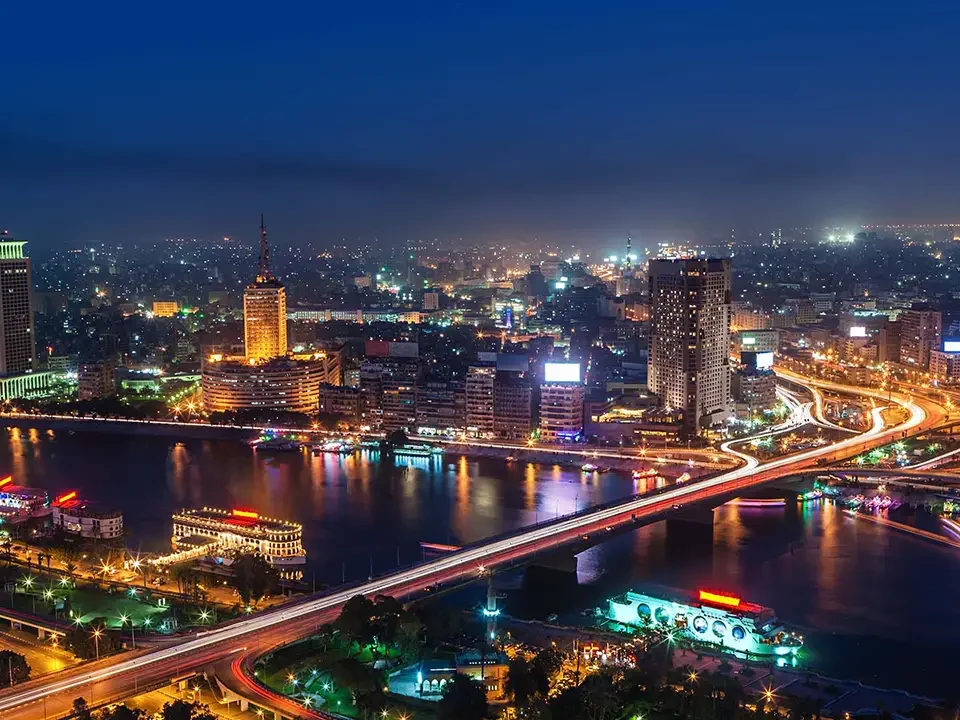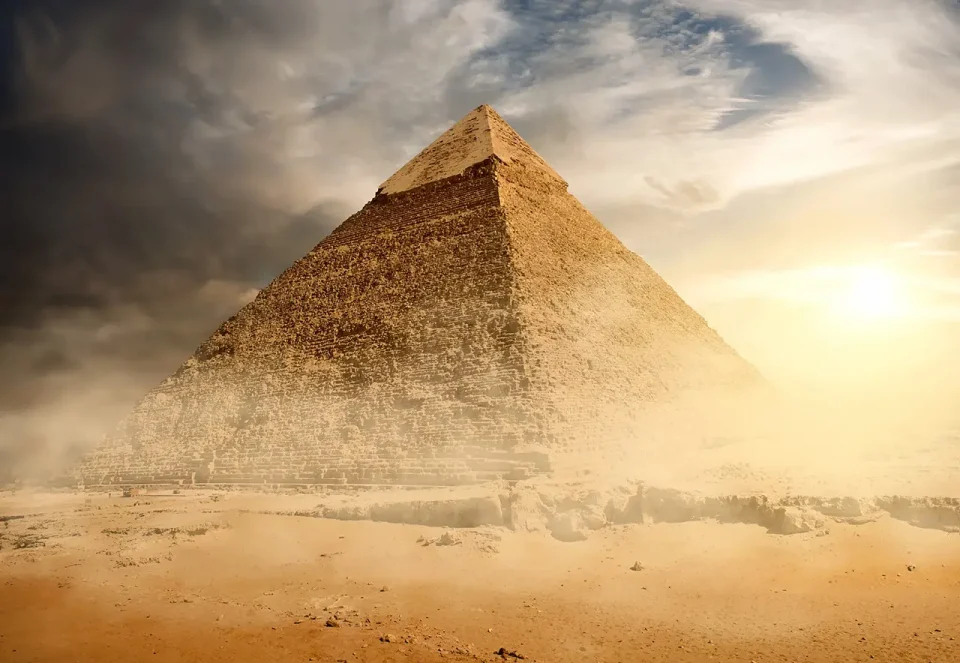Cairo, the mesmerizing capital of Egypt, boasts a rich tapestry of history, culture, and modernity. With its bustling streets, ancient wonders, and vibrant atmosphere, there is no shortage of things to do in this enchanting city. In this comprehensive guide, we’ll explore the top attractions and hidden gems that the city has to offer, ensuring that your trip is nothing short of unforgettable.
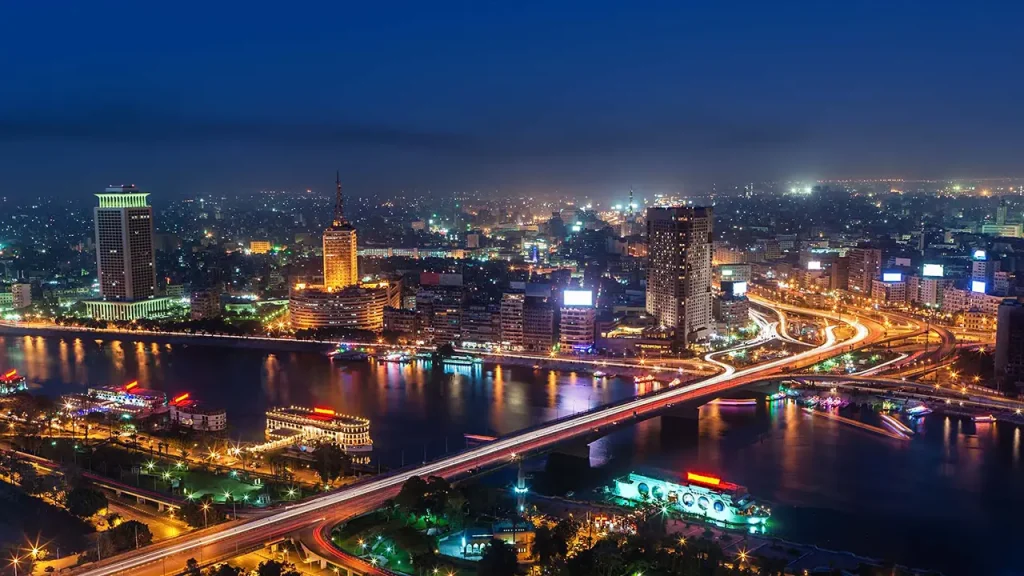
Table of Contents
Top Things to do
From world-renowned sites to local secrets, let’s dive into the heart of this captivating metropolis.
1- The Great Pyramids of Giza:
The awe-inspiring Great Pyramids of Giza are a must-see for anyone visiting Cairo. These iconic landmarks are the last remaining Ancient Wonder of the World, standing tall as a testament to the ingenuity and ambition of the ancient Egyptians. The Great Pyramid of Cheops (also known as Khufu) is the largest of the three and offers a fascinating look into the lives of the pharaohs. Ensure you also visit the Sphinx, a mysterious creature with a lion’s body and a human head, guarding the pyramids.
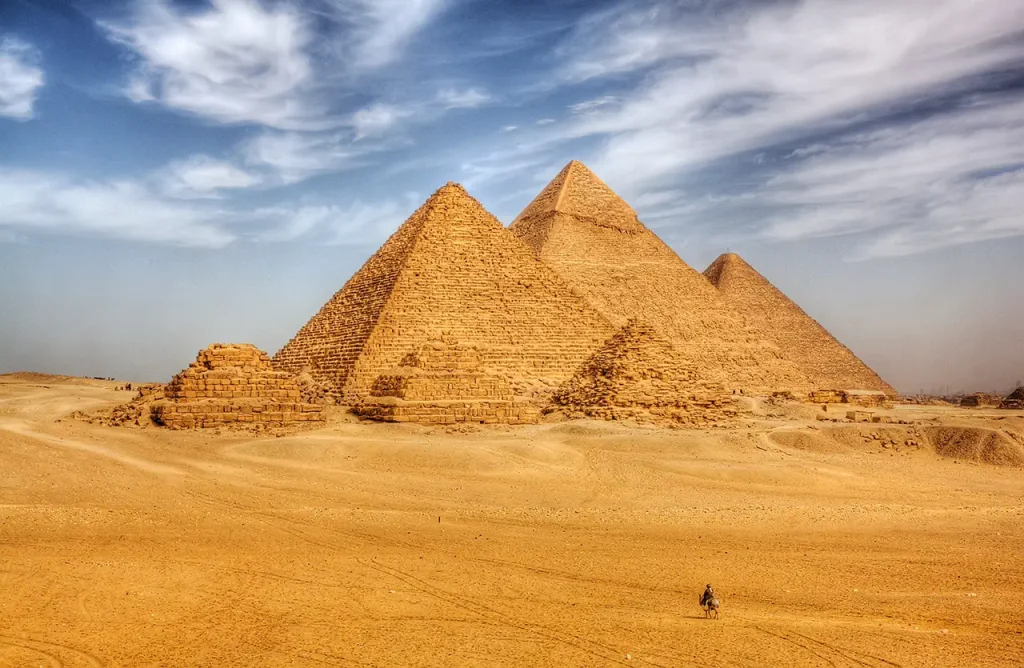
2- Egyptian Museum:
Immerse yourself in Egypt’s rich history at the Egyptian Museum, home to the world’s most extensive collection of ancient Egyptian artifacts. You’ll encounter over 120,000 items, including the priceless treasures of Tutankhamun, mummies, jewelry, and statues. This museum is an essential stop for anyone looking to delve into Egypt’s intriguing past.
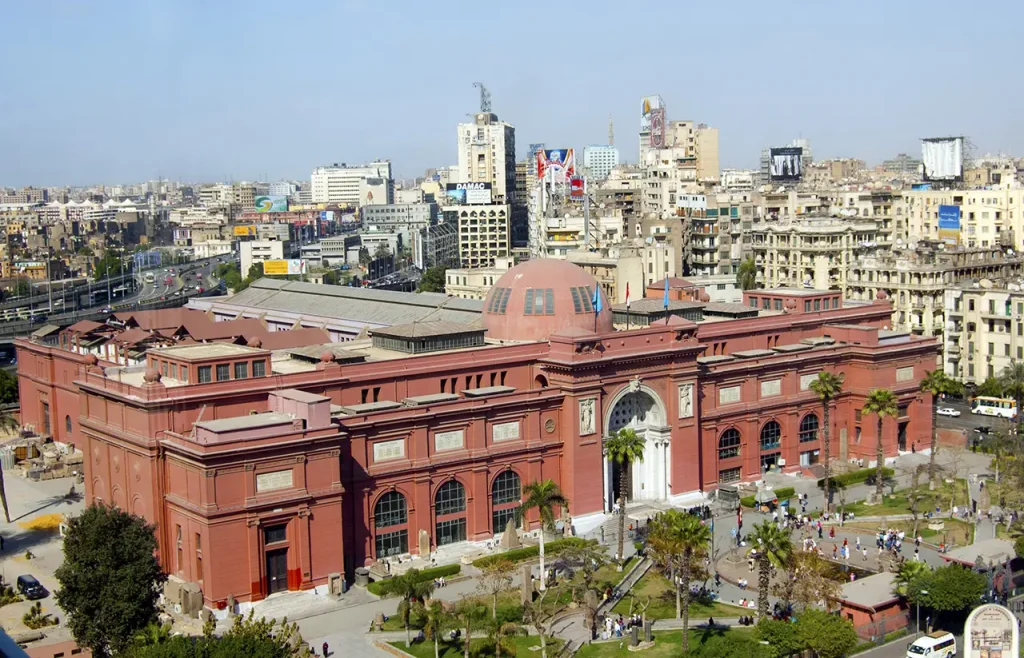
3- The Citadel:
The Saladin Citadel, also known as the Citadel of Cairo, is a medieval fortress that has stood strong for centuries. Home to several museums, mosques, and palaces, this impressive structure offers a unique look into Cairo’s complex history. Don’t miss the breathtaking Muhammad Ali Mosque, a masterpiece of Ottoman architecture that towers above the city.
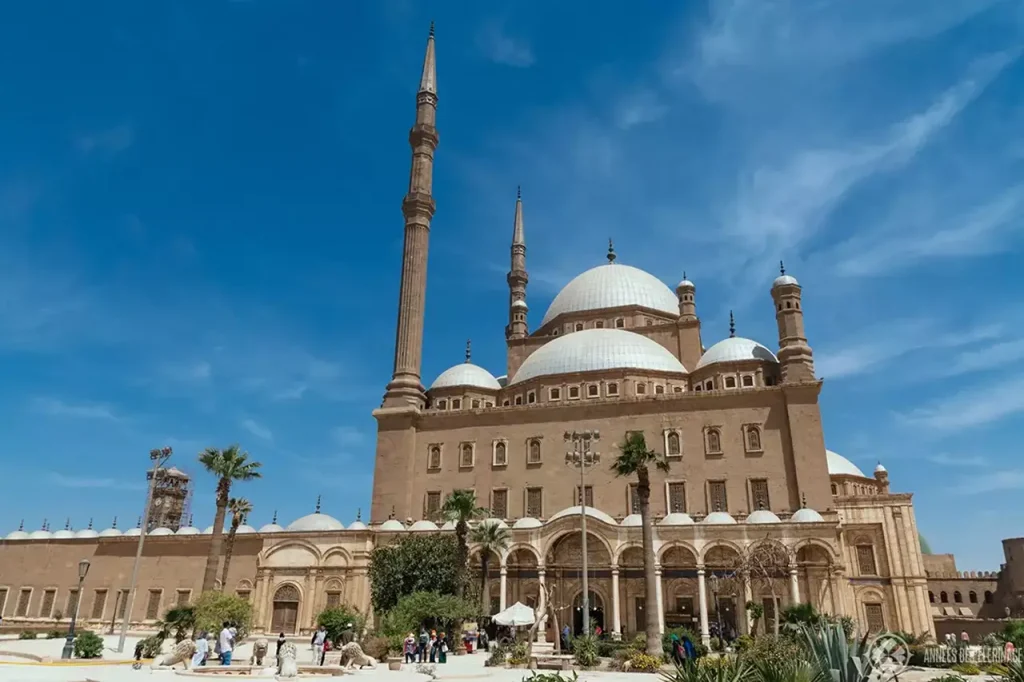
4- Khan El-Khalili:
Get lost in the winding alleys of Khan El-Khalili, Cairo’s largest bazaar, and one of the oldest markets in the world. This vibrant market is brimming with shops selling everything from intricate jewelry and exotic spices to handcrafted souvenirs and traditional clothing. Be prepared to haggle, as bargaining is an essential part of the shopping experience in Cairo.
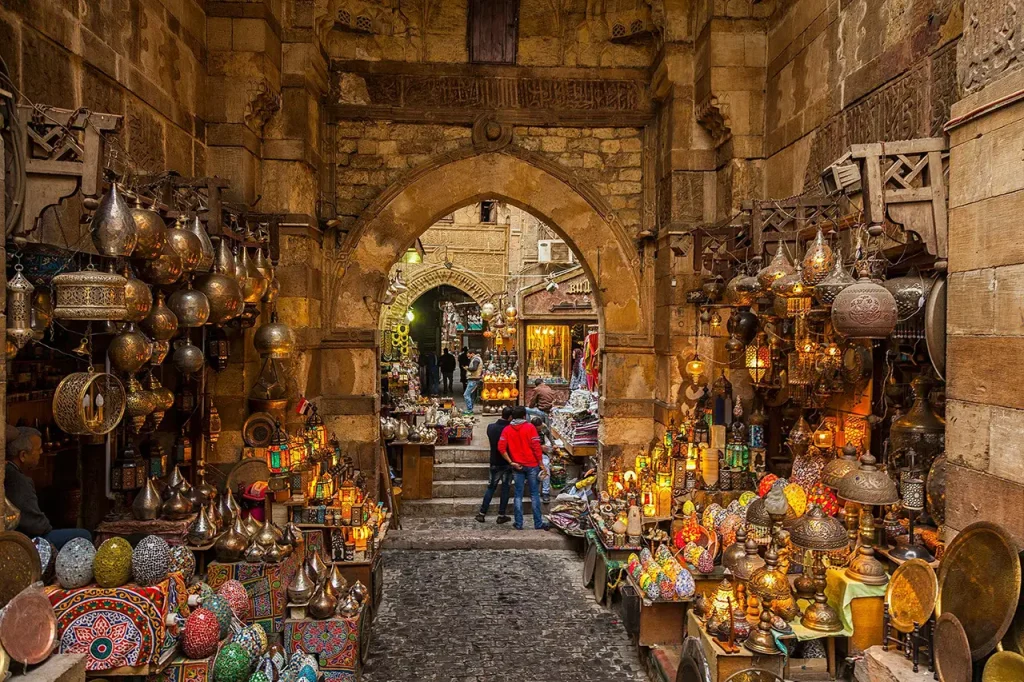
5- Old City:
Step back in time as you explore Old Cairo, a district filled with ancient churches, synagogues, and mosques. Visit the Hanging Church, one of the oldest Christian churches in Egypt, and marvel at the beautiful Coptic art and architecture. The Ben Ezra Synagogue and the Mosque of Amr Ibn Al-As are also must-visit sites in this captivating neighborhood.
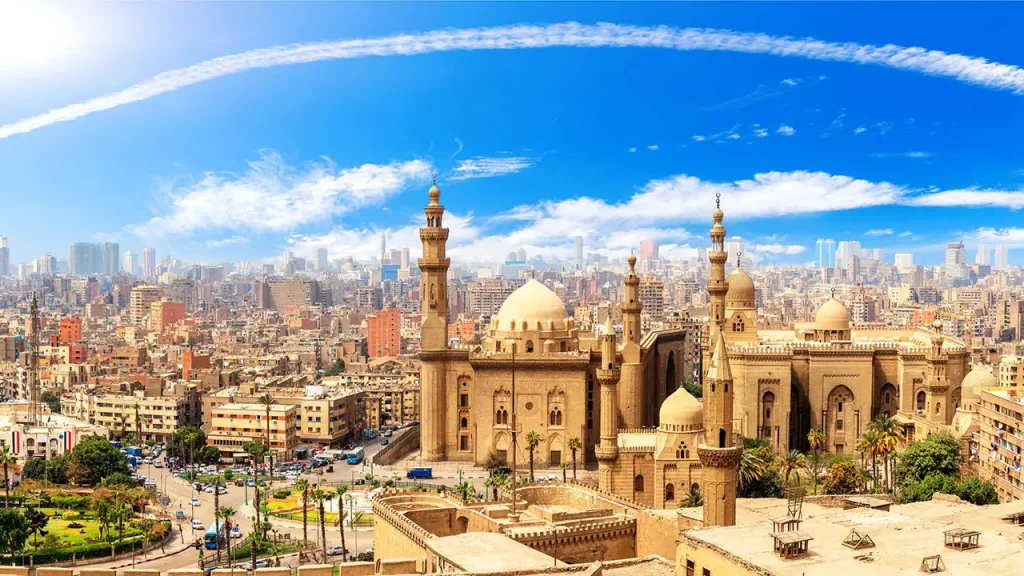
6- Al-Azhar Park:
Escape the bustling city and find serenity in Al-Azhar Park, a beautiful green oasis in the heart of the city. This meticulously landscaped park offers a peaceful retreat, with stunning views of the city skyline and the Citadel. Take a leisurely stroll through the gardens, or enjoy a picnic with family and friends as you soak in the surrounding beauty.
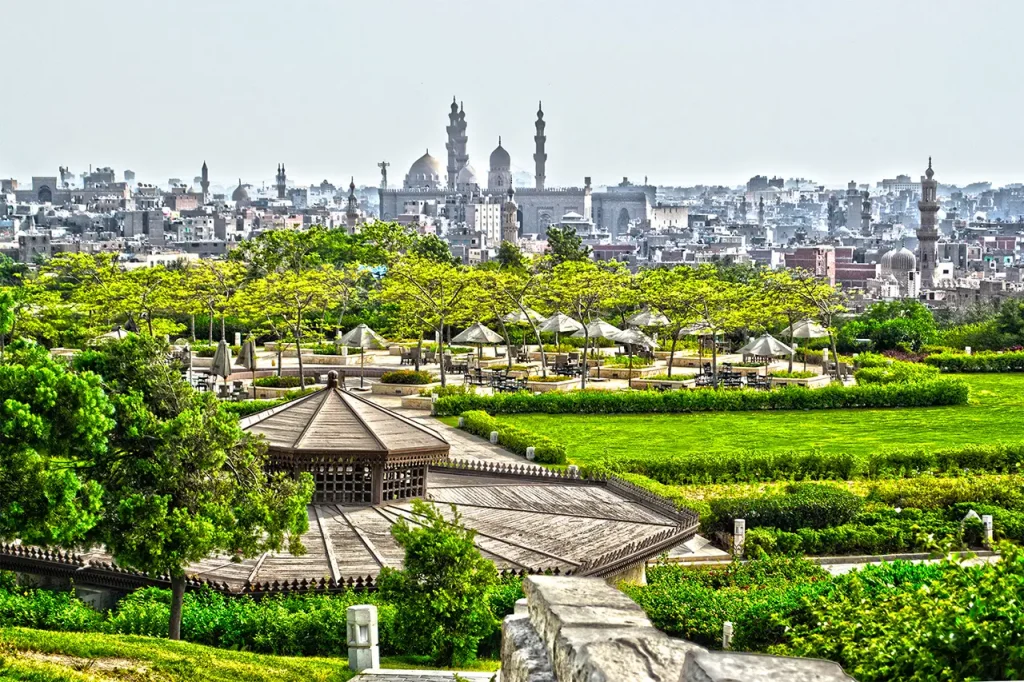
7- Nile River Cruise:
Experience Cairo from a different perspective as you embark on a magical Nile River cruise. Whether you opt for a traditional felucca sailboat or a luxurious dinner cruise, you’ll be treated to breathtaking views of the cityscape and its historical landmarks. It’s an unforgettable way to spend an evening in Cairo.
8- Cairo Tower:
Soar high above the city at the Cairo Tower, Egypt’s tallest structure, standing at 187 meters (614 feet). From the observation deck, you’ll enjoy panoramic views of Cairo and its surroundings, including the Pyramids of Giza on a clear day. Don’t forget to visit the revolving restaurant at the top, where you can indulge in delicious cuisine while taking in the stunning vistas.
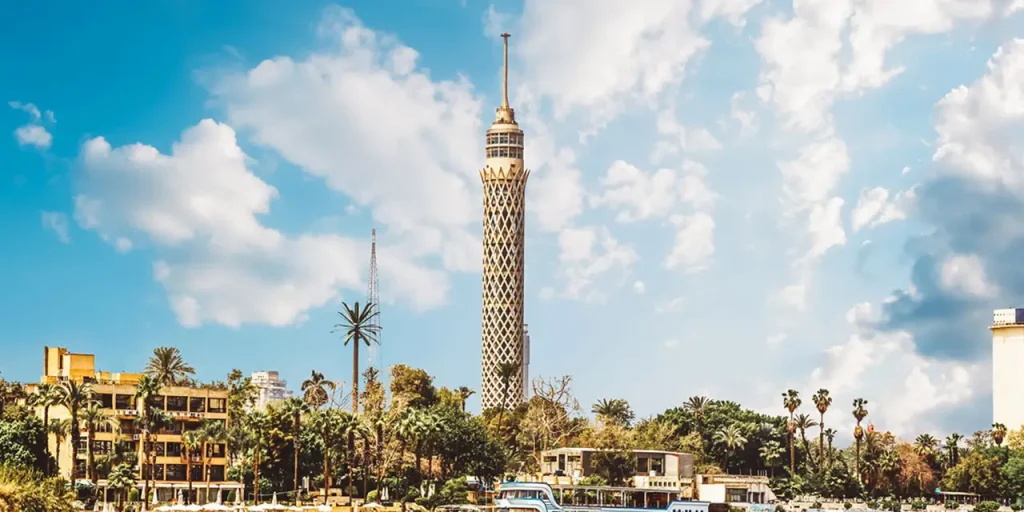
9- Street Food and Culinary Delights:
Cairo’s vibrant food scene offers an array of mouthwatering dishes that cater to all palates. Sample traditional Egyptian street food like koshary, a delicious combination of rice, pasta, lentils, and tomato sauce, or savor the flavors of freshly grilled kebabs and shawarma. Don’t forget to try Egyptian desserts, such as baklava and umm Ali, and finish your meal with a refreshing cup of mint tea.
10- Whirling Dervishes Show:
Witness the mesmerizing Sufi dance known as the Whirling Dervishes at the Wekalet El-Ghouri Arts Center. This entrancing performance features dancers in traditional attire spinning rhythmically to the beat of live music, creating a truly captivating experience. It’s an excellent opportunity to immerse yourself in Egyptian culture and spirituality.
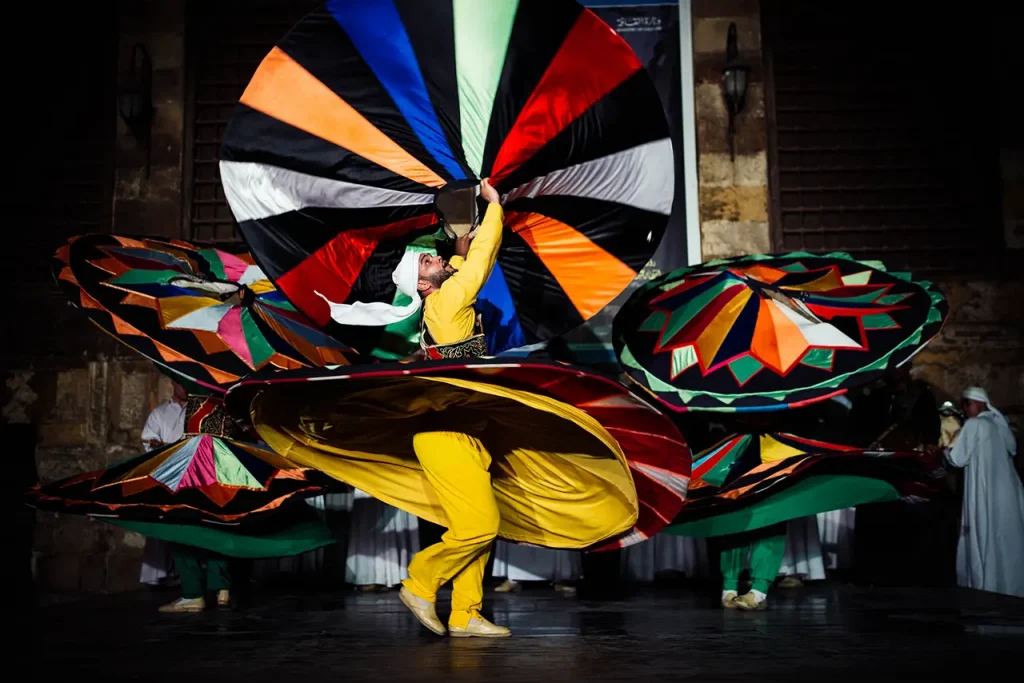
11- Saqqara and Memphis:
Venture outside of Cairo to discover the ancient sites of Saqqara and Memphis. Saqqara is home to the Step Pyramid of Djoser, the oldest stone monument in the world, while Memphis was once the capital of ancient Egypt. Both sites offer a fascinating insight into Egypt’s storied past and are well worth the visit.
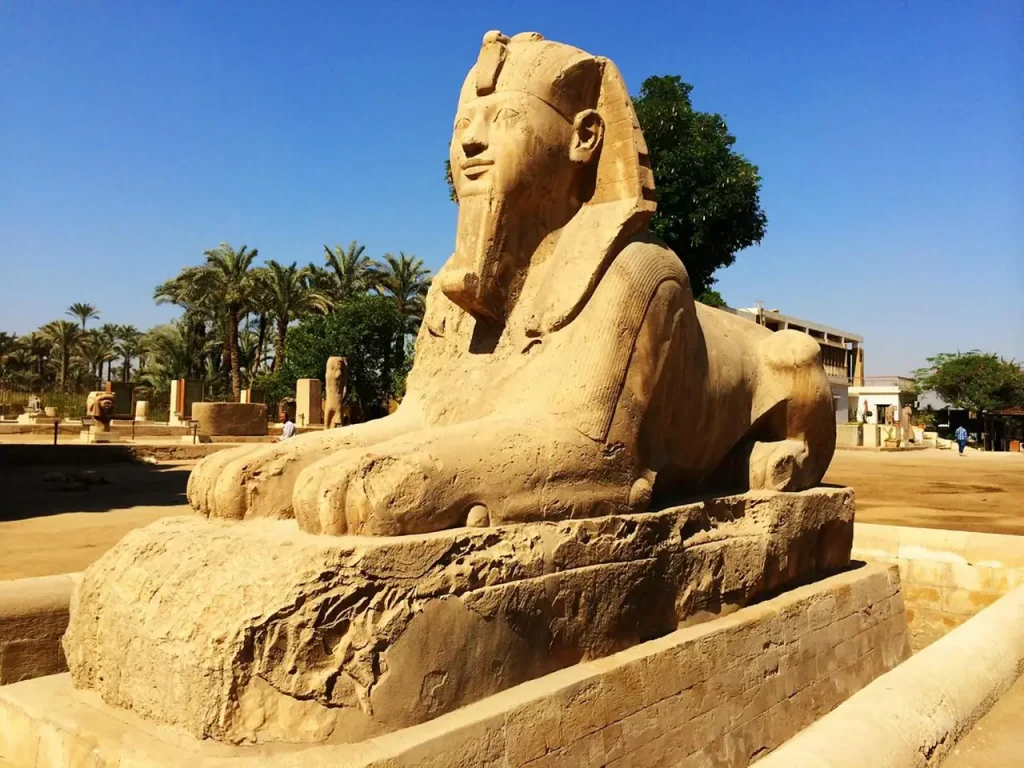
12- Islamic Cairo:
Explore the historical district of Islamic Cairo, where you’ll find countless mosques, madrasas, and monuments showcasing stunning Islamic architecture. Notable sites include the Al-Azhar Mosque, Ibn Tulun Mosque, and the Al-Hakim Mosque. While wandering through the narrow streets, you’ll also encounter vibrant markets, local craftsmen, and friendly residents, making for a memorable experience.
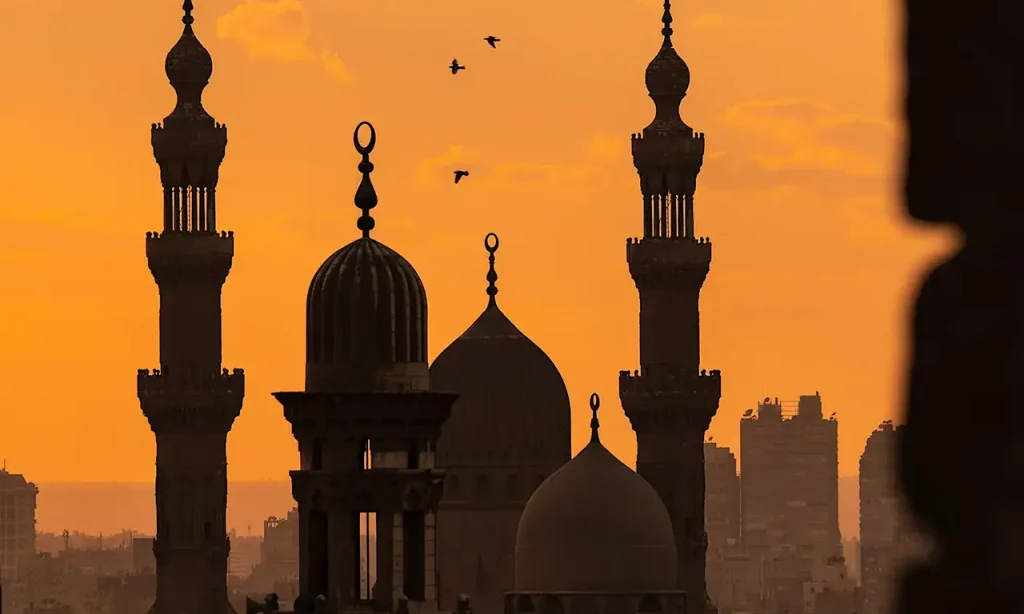
13- Felucca Ride on the Nile:
For a more intimate and traditional experience on the Nile, book a felucca ride. These wooden sailboats have been used for centuries to navigate the river, and today they offer a relaxing way to enjoy Cairo’s scenery. As you glide along the water, watch the sun setting behind the city’s landmarks, creating a truly magical atmosphere.
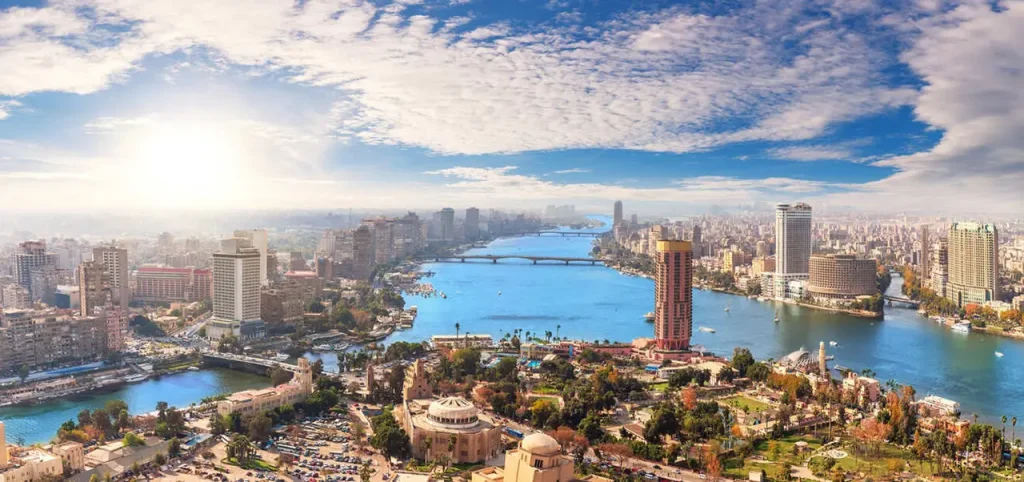
14- Zawya Cinema:
Cairo’s independent film scene is thriving, and Zawya Cinema is at the heart of it. This small, charming cinema showcases local and international independent films, documentaries, and classics. A visit to Zawya is a great way to support local artists and experience a unique side of Egyptian culture.
History of Cairo
Cairo, the capital of Egypt, boasts a rich and complex history that spans thousands of years. Founded in the 10th century, the city has been influenced by numerous civilizations and empires, leaving a lasting impact on its culture and architecture. Here is a brief overview of Cairo’s history:
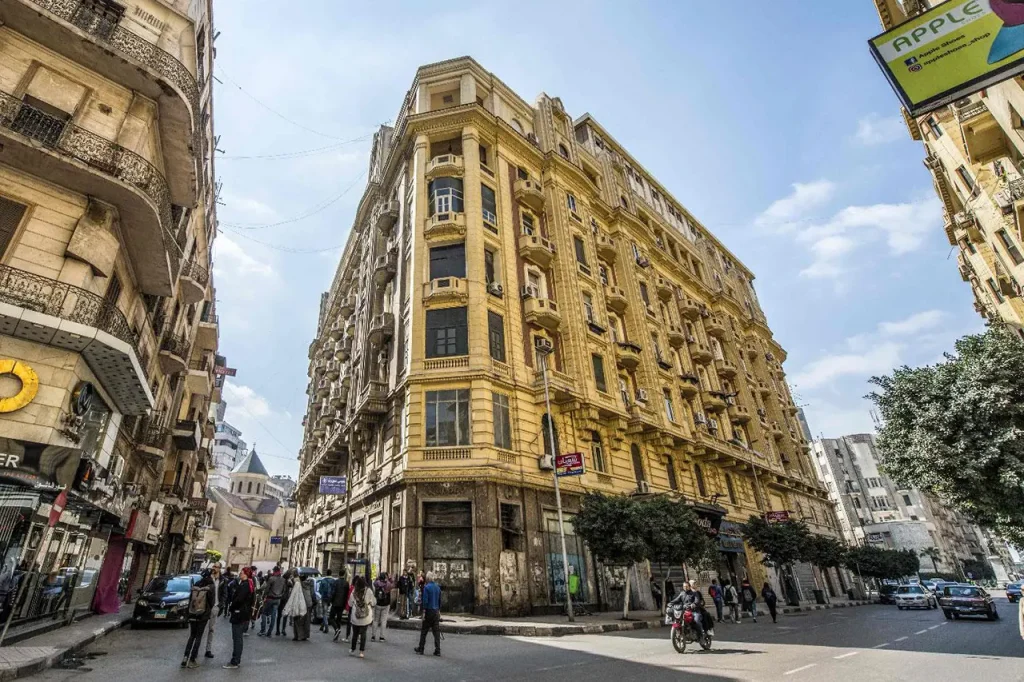
- Pre-Cairo Era: Before Cairo came into existence, the ancient city of Memphis was the capital of Egypt. Established around 3100 BCE by King Menes, Memphis served as an essential political and cultural center in ancient Egypt. The ruins of Memphis can still be visited today, just 24 kilometers (15 miles) south of Cairo.
- The Fatimid Caliphate: In 969 CE, the Fatimid dynasty founded the city of Al-Qahira, which means “The Victorious” in Arabic. This name was later anglicized to “Cairo.” The Fatimids were an Islamic dynasty that traced their ancestry to Fatima, the daughter of the Prophet Muhammad. They established Cairo as a political and religious center, building numerous mosques, palaces, and public buildings.
- The Ayyubid Dynasty: In 1171, the Kurdish general Salah ad-Din (Saladin) overthrew the Fatimid Caliphate and founded the Ayyubid dynasty. Saladin built the Citadel of Cairo, a fortress meant to protect the city from Crusader attacks. During this period, Cairo experienced significant growth and became an important center for Islamic learning and culture.
- The Mamluk Sultanate: The Mamluk Sultanate, a regime of former slave soldiers, took control of Egypt in 1250. Under their rule, Cairo continued to thrive as a political, economic, and cultural hub. The Mamluks commissioned the construction of numerous mosques, madrasas, and public buildings, leaving a lasting impact on Cairo’s architectural landscape.
- The Ottoman Empire: In 1517, the Ottoman Empire conquered Egypt and incorporated it into their vast territories. While Cairo remained an important city, it lost some of its political and economic influence as the Ottomans shifted their focus to Istanbul. The city experienced a period of stagnation, and many of its architectural monuments fell into disrepair.
- The French Expedition and the rise of Muhammad Ali: In 1798, Napoleon Bonaparte launched a military campaign in Egypt, occupying Cairo for a short period. The French occupation prompted significant political and social changes in Egypt. In 1805, an Albanian military commander named Muhammad Ali Pasha seized power and embarked on a series of modernization efforts. He is often referred to as the founder of modern Egypt. Under his rule, Cairo experienced a resurgence, with new buildings, infrastructure, and cultural institutions being established.
- British Occupation and Independence: In 1882, the British occupied Egypt, effectively establishing a colonial presence in the country. Cairo served as the administrative center of British rule. However, the desire for independence grew stronger, and in 1922, Egypt was granted partial independence, with Cairo as its capital. In 1952, a military coup led by Gamal Abdel Nasser overthrew the monarchy, and Egypt became a republic.
- Modern Cairo: Today, Cairo is a vibrant and bustling metropolis, home to over 20 million people. The city has experienced rapid urbanization and growth, which has brought both opportunities and challenges. As the political, economic, and cultural center of Egypt, Cairo’s rich history is evident in its diverse architecture, museums, and monuments, making it a fascinating destination for travelers from around the world.
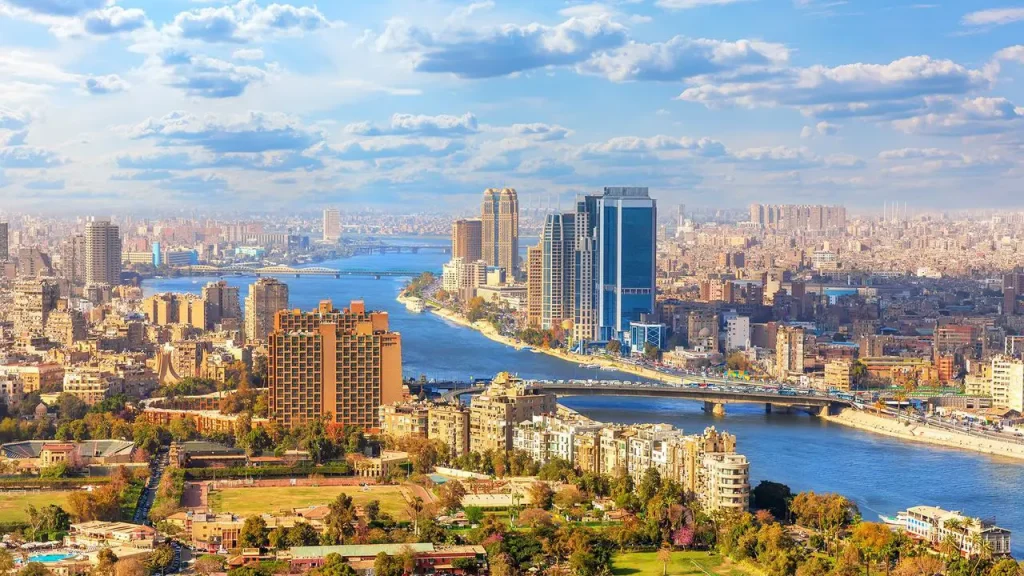
Our Latest YouTube Video
Conclusion
Cairo is a city that truly has something for everyone. From ancient wonders and mesmerizing performances to mouthwatering street food and vibrant markets, this enchanting capital offers a wealth of experiences that will leave a lasting impression on any traveler. With this comprehensive guide, you’re well-equipped to explore the best that Cairo has to offer, ensuring an unforgettable journey through Egypt’s captivating history and culture.
